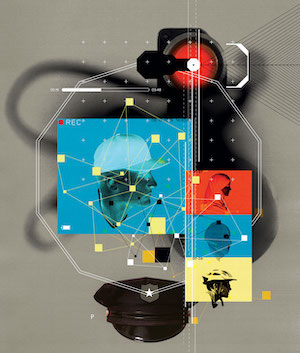New AI Systems to Interpret Police Body-Cam Video, but Researchers are Skeptical

 Following the killings of a number of unarmed black citizens by police, Axon Enterprise, formerly known as Taser International, shifted its focus from stun guns to body-cam video.
Following the killings of a number of unarmed black citizens by police, Axon Enterprise, formerly known as Taser International, shifted its focus from stun guns to body-cam video.
Researchers have followed Axon’s plans to build artificial intelligence systems, AI, to process, label and interpret police body-cam video and they have their doubts.
Dan Greene, assistant professor at the University of Maryland College of Information Studies, UMD iSchool, and his colleague, Dr. Genevieve Patterson, a computer vision researcher, question the practicality of Axon’s strategy and the preparedness of Axon’s proposed AI capabilities.
The application of machine learning for the classification of police body-camera video has become a major flash point in the broader debate over whether proprietary software should be incorporated into the criminal-justice system. In their article, “The Trouble With Trusting AI to Interpret Police Body-Cam Video” Greene and Dr. Patterson discuss their concerns and also offer suggestions for how to manage technology that is on the horizon.
The article, “The Trouble With Trusting AI to Interpret Police Body-Cam Video” was published in IEEE Spectrum, the flagship magazine of the world’s largest professional organization devoted to engineering and the applied sciences.